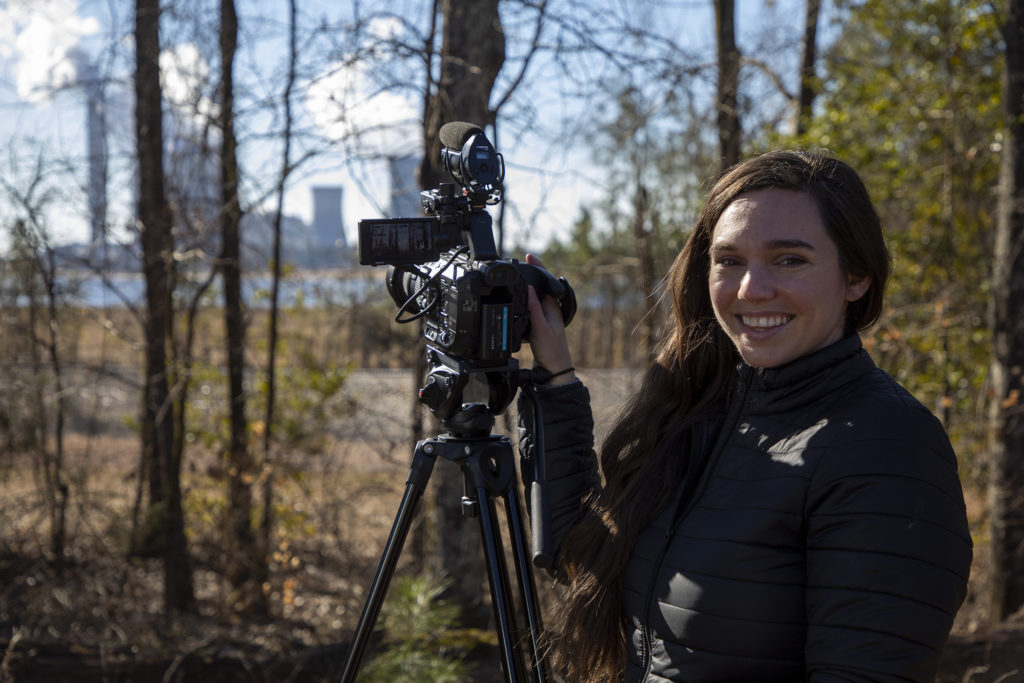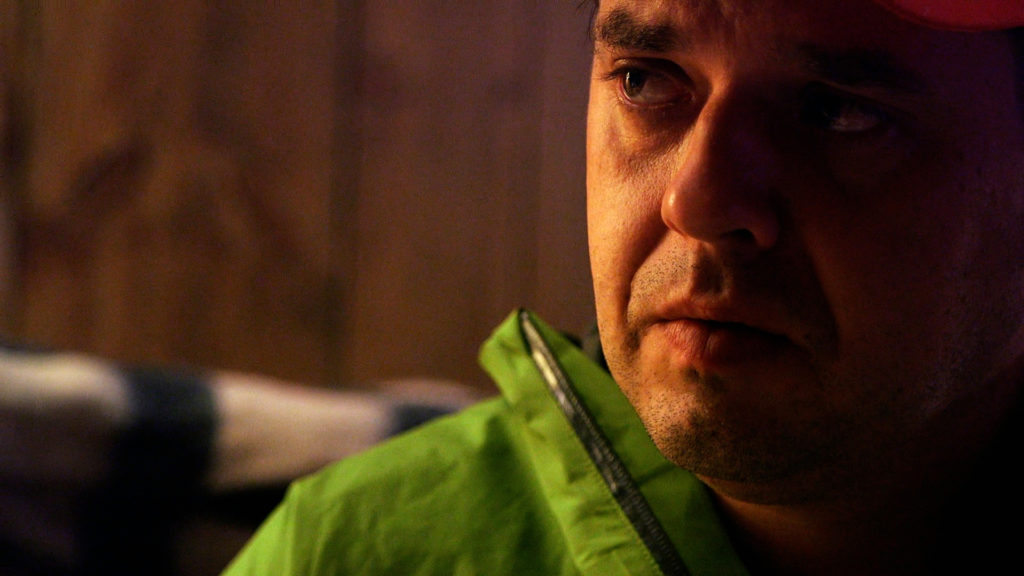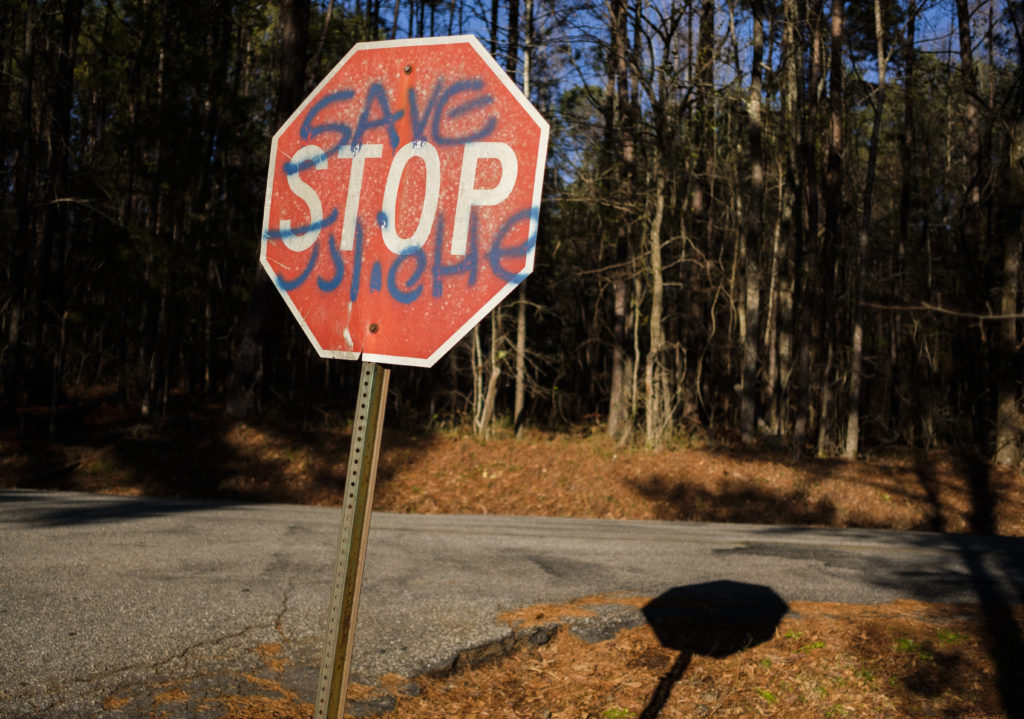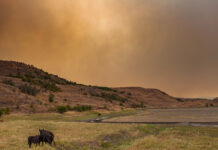Sitting in a community meeting in Juliette in early 2020, Evey Wilson Wetherbee was struck by the emotion that filled the room. Residents living near the unlined coal ash pond of Georgia Power’s Plant Scherer were scared, angry and wanted answers about their polluted well water.
Compelled to tell their story and create a comprehensive public record, the Mercer journalism assistant professor directed a 40-minute investigative documentary called “Saving Juliette,” which was released by Georgia Public Broadcasting in March and is now being screened at film festivals.
The film won awards for Audience Choice Documentary at the 2021 Macon Film Festival and Best Short Documentary at the 2021 Full Bloom Film Festival in Statesville, North Carolina. Earlier this month, it was screened at the Chagrin Documentary Film Festival in Chagrin Falls, Ohio, and it will play at the Virginia Film Festival in Charlottesville next month. The community is invited to a screening of “Saving Juliette” at 7 p.m. Oct. 28 in Peabody Auditorium at Georgia College in Milledgeville.
The documentary, co-produced and filmed by Wetherbee and GPB Macon reporter Grant Blankenship, begins as Juliette residents learn their drinking water is contaminated and follows them over a yearlong period as they grapple with what it means for their health and fight to have the coal ash pond closed.
“We made a decision with the editing of the film to not follow one family but instead to follow the community so that you could feel that the issue was pervasive,” said Wetherbee, also a journalist in residence in Mercer’s Center for Collaborative Journalism. “It felt like everyone knew someone who was impacted by an illness, and they all wondered if the water was the cause. It was overwhelming how many people were having these experiences.”

Residents around Plant Scherer have used private wells for their water for decades because they don’t have access to city or county water. High cancer rates and rare illnesses are common among this community. Neighbors saw nearby homes bought and demolished, and padlocked fences and Georgia Power signs were left in their place.
“The idea that there had been people who had been mysteriously sick in and around Juliette was something that a lot of us who were journalists in Macon had known for a long time,” Blankenship said. “I got wind that somebody was going to be doing water testing to at least point to some sort of correlation between water and these illnesses. I got the feeling then that there would be a lot of story to tell this time, in a way that was more definitive and would plant a flag in the story that we hadn’t been able to do in the past.”
Blankenship and Wetherbee spent a lot of time following Fletcher Sams, executive director of watershed protection organization Altamaha Riverkeeper, as he visited residents to conduct water sampling and analysis. Among other chemicals and metals, water tests at all the homes revealed high levels of hexavalent chromium.

“It still surprises me that even now the EPA (Environmental Protection Agency) is trying to decide on what an actual harmful level of exposure to this hexavalent chromium is,” Blankenship said. “I’m shocked that that’s not something that’s nailed down and isn’t an EPA standard.”
While no federal standards currently exist, California has adopted a maximum contaminant level of hexavalent chromium allowed in drinking water. Levels of hexavalent chromium found in Juliette water were 505 times the legal California limit, according to the documentary.
“People are pushing for more renewable energy sources and moving away from burning coal,” Wetherbee said. “Juliette is a community that represents a lot of those communities around the country that are looking at that same question: What are we going to do with this coal ash that is left behind?”
Wetherbee said the documentary required a lot of research, data analysis and conversations with experts to confirm the science and facts, and it took her four months to edit. She and Blankenship did three months of on-the-field reporting initially, followed by additional interviews and filming to complete the story.

Throughout “Saving Juliette,” viewers see the residents talking candidly about health issues in their homes, getting into heated arguments during community meetings at churches, and lobbying at the state Capitol.
Wetherbee, who was pregnant at the time of filming, said her conversations with moms really resonated with her. One mother talked about how she always pushed her children to drink water so they wouldn’t be dehydrated, and now she wonders what damage that water may have done to them.
The documentary also shows how politics can get in the way of nonpartisan policy discussions and how this largely conservative community felt unserved by their elected lawmakers, Blankenship said.
“This is a story about a small town fighting for clean water, but it’s also a story about a small town wrestling with their personal politics,” Wetherbee said.
Juliette is an “incredible community that deserves to be fought for,” and it was refreshing to see how tight-knit the community is, she said.
“I was really heartened to see people come together as a community through this,” Blankenship said. “We live in a time that’s really easy to think people are only looking out for themselves. To watch all these folks collaborate and come together, that gave me a little hope.”








